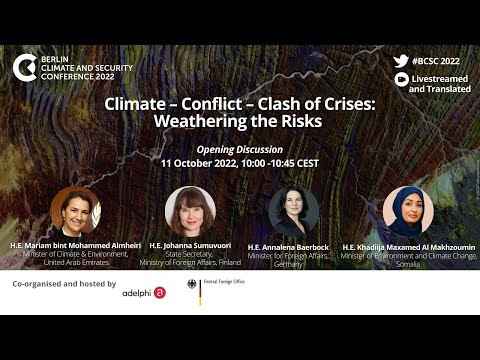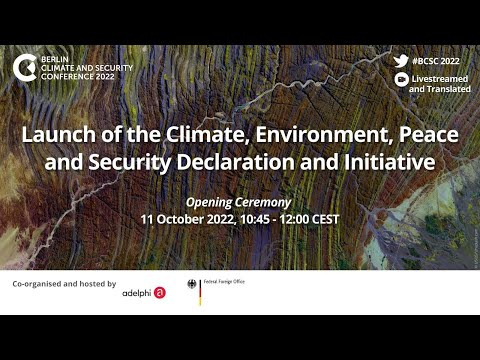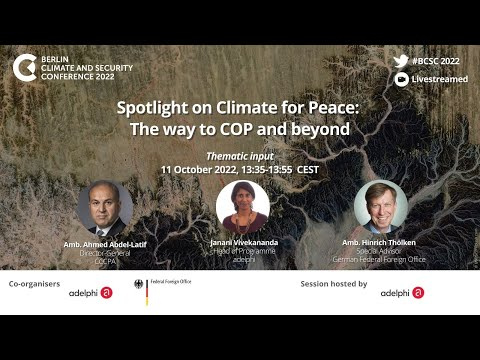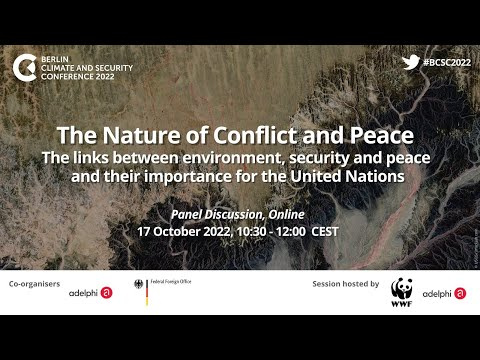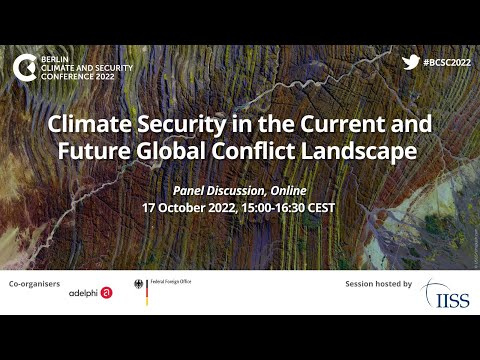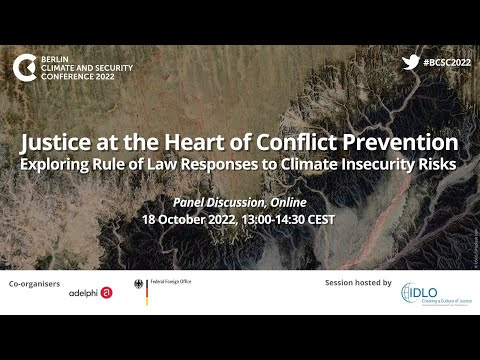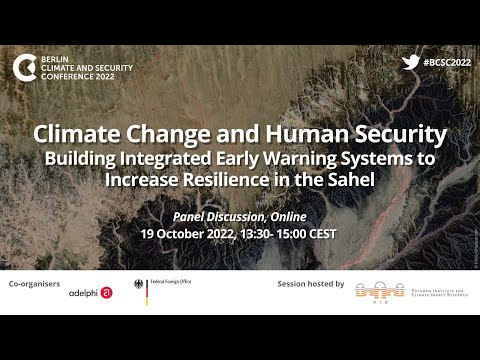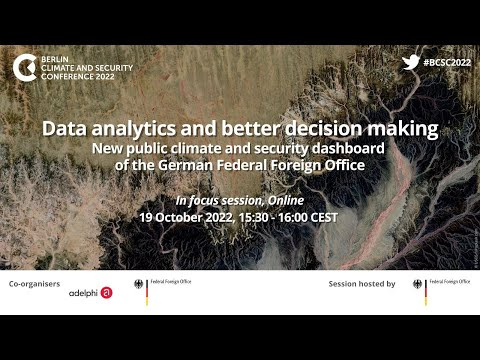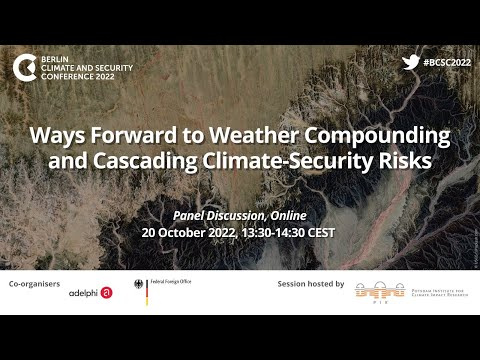BCSC 2022 connected important initiatives in the climate security space on their way to COP27 and beyond, facilitating deliberation across and between governmental and civil society stakeholders from around the globe. This included discussions with the Climate Security Expert Network, the Climate Security Mechanism, CCCPA with its initiative Climate Responses for Sustaining Peace, the Planetary Security Initiative, Weathering Risk partners and over 20 governments supporting the Climate for Peace Initiative.
BCSC participants welcomed the progress made by key international actors such as the UN, the World Food Program, the OSCE, NATO and the African Union and saw them exchange on their progress and challenges, preparing next steps. Conference sessions discussed for example lessons learned from the mediators in the Weathering Risk Peace Pillar; the OSCE’s dialogues in South-Eastern Europe, the South Caucasus and Central Asia; the World Food Programme’s efforts to integrate climate security risks into food system support in East Africa; the PREVIEW project; and NATO’s efforts to systematically integrate climate change into its thinking.
BCSC 2022 at a glance
Who: High-level political actors, climate security experts, international organisations and practitioners
What: Since its inaugural edition in 2019, BCSC has become the global forum connecting important stakeholders working to better address the impacts of climate change on international peace and security through diplomacy, development and defence approaches
When: 11-12 October 2022 (In-person, invitation only); 17-20 October 2022 (Online)
Where: The in-person segment of BCSC took place in Berlin at the German Federal Foreign Office
Why: To address climate impacts on peace and stability and its interlinkages with current geopolitical challenges
Agenda: The in-person agenda (11-12 October) can be viewed here. For those who couldn't join in person or want to rewatch sessions, you can view the livestream recording below. The digital segment agenda (17-20 October) can be viewed here. The video recordings are available below.
Background
Speaker overview
BCSC in the media


A highlight was the launch of the Climate for Peace Initiative (#Climate4Peace) during the opening ceremony. In an interactive fishbowl discussion, participating countries committed to enhance projects in line with the principles laid out in on the Climate, Environment, Peace and Security Declaration that has been endorsed by over 20 governments:
- Aligning our actions within the constraints that the planetary boundaries imply - especially with the need to limit global temperature increase to 1.5 °C
- Supporting states and regions where stability and peace are affected most by climate-and environment-related risks
- Improving resilience and adaptation by ensuring that all our policies and practices are inclusive, climate-, context- and conflict-sensitive, gender-responsive, and tailored to local conditions and stakeholder needs, while also keeping in mind that the international community has asserted the importance of the human right to a clean, healthy and sustainable environment.
WATCH:
Spotlight on Climate for Peace: The way to COP and beyond
Towards a Green Central Asia: Preventive and stabilizing climate foreign policy
Weathering Risk: From Risk to Resilience
The Nature of Conflict and Peace: The links between environment, security and peace
Protecting the vulnerable while improving human security: The Global Shield against climate risks and other approaches
Tanks, Troops and Temperature Rise: Implementing NATO's Climate Security Strategy
CLOSING SESSION - Resolving Conflict & Clashing Crises: Where hard and soft security challenges converge
The nature of conflict and peace: The links between environment, security and peace and their importance for the United Nations
Climate security in the current and future global conflict landscape
Building peace & protecting the environment: Supporting civil society in the Middle East
Climate change and human mobility, conflict sensitivity and food insecurity in the Karamoja Cluster
Justice at the heart of conflict prevention: Exploring rule of law responses to climate insecurity risks
Climate change and human security: Building integrated early warning systems to increase resilience in the Sahel
Data analytics and better decision making: New public climate and security dashboard of the German Federal Foreign Office
Turning Africa's Climate-Security Risks into Opportunities
Ways forward to weather compounding and cascading climate-security risks
How can Climate Risk Management be Strengthened in Conflict Zones?




